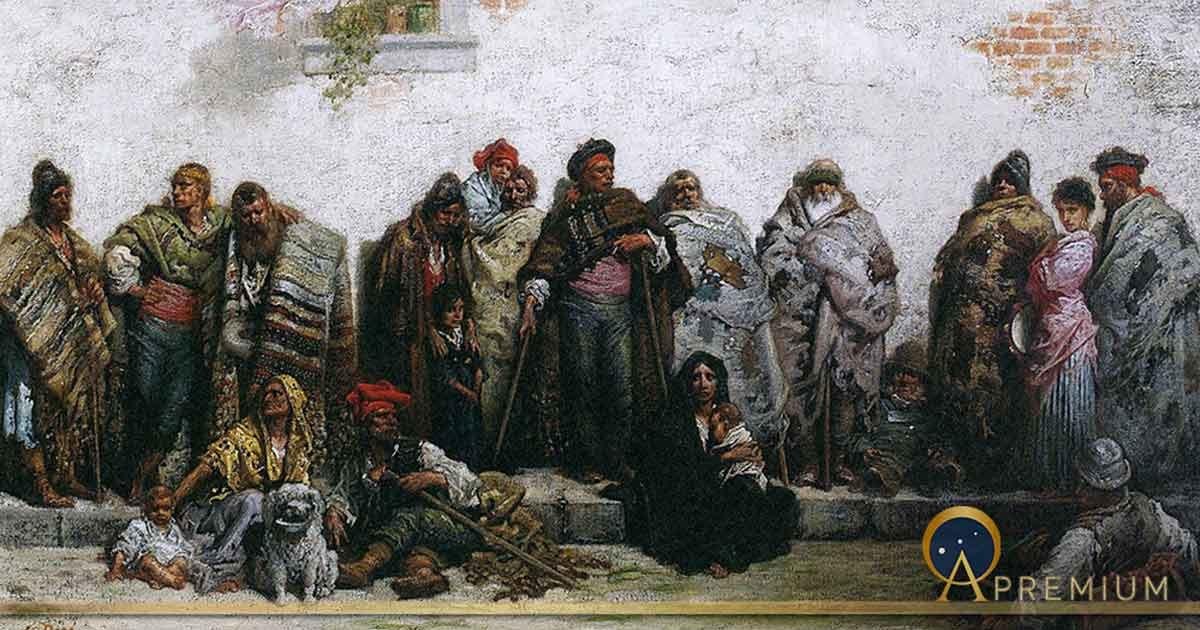
How The Other 99 Percent Lived In The Ancient World
The Victorian essayist and historian Thomas Carlyle wrote, “ No great man lives in vain. The history of the world is but the biography of great men.” Carlyle died half a century before women in England, Scotland and Wales received the vote, in 1928 to be precise, or he might have modified that statement. He also died a generation before the outbreak of the First World War, which was directly caused by the assassination of the Archduke Francis Ferdinand, heir to the throne of the Austro-Hungarian Empire, in Sarajevo, June 1914. The assassin was a Bosnian Serb named Gavilo Princip – a nonentity, if ever there was one.
But apart from such oversights, as one might charitably call them, Carlyle’s so-called Great Man Theory of History, which still holds sway in certain quarters today, ignores the fact that humans’ lives have been largely shaped by the doggedness and persistence of ordinary people, who have bequeathed to successive generations, including the most recent, a quality of life that is far superior to the one they themselves enjoyed or rather, in many cases, endured. It is that 99 percent of human beings – those on the other side of history – that include the enslaved, the infirm, the disabled, the homeless, the elderly, refugees, prisoners of war, women and especially widows and prostitutes, children, primarily orphans, and all manner of social rejects, including those identified as illegitimate and the deformed, who made a difference.

Belisarius Begging for Alms by Jacques-Louis David (1780) (Public Domain)
Dawn of Humans’ Narrative
Even at the dawn of humans’ story, there was a hierarchy that privileged a few and excluded the many. Around 300,000 years ago at least nine species of humans – the technical term is hominins – roamed the earth. That was in addition to homo sapiens, the current species. Prominent among these nine species were homo erectus and homo neantherthalis – or Neanderthals, as they are commonly called. A mere 10,000 years ago, however, homo sapiens ruled the earth, all the other hominin contenders having disappeared, whether because of climate change or as a result of genocide or due to a combination of both.

Artist’s depiction of Catalhoyuk, 8000 BC. Catalhoyuk Museum (Image: Courtesy Micki Pistorius)
Roughly at the same time a momentous event occurred known as the Neolithic Revolution, when modern man’s ancestors ceased being hunter gatherers exclusively and began to commit themselves to sedentism, that is to say, to a settled way of life, inhabiting villages, particularly beside rivers.
Like this Preview and want to read on? You can! JOIN US THERE ( with easy, instant access ) and see what you’re missing!! All Premium articles are available in full, with immediate access.
For the price of a cup of coffee, you get this and all the other great benefits at Ancient Origins Premium. And - each time you support AO Premium, you support independent thought and writing.
Dr Robert Garland obtained his M.A. in Classics from McMaster University and his Ph.D. in Ancient History from University College London. His research focuses on the social, religious, political, and cultural history of both Greece and Rome. He has written 17 books including How to survive in ancient Greece.
Top Image: The Beggars of Burgos by Gustave Dore (1875) (Public Domain)














